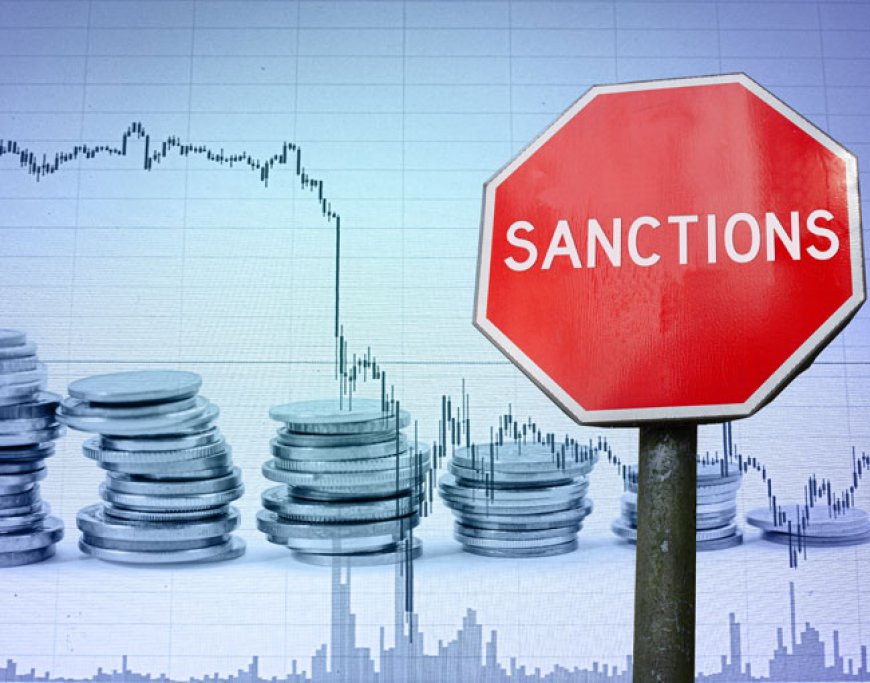Sanctions on Russia, Iran, and Venezuela: Global Energy Markets Under Pressure
According to Igor Sechin, CEO of Rosneft, Western countries' sanctions on Russia, Iran, and Venezuela have upset around 40% of the world's hydrocarbon resource base. With Europe and the Asia-Pacific area among the most impacted, this broad influence emphasizes the far-reaching effects of economic constraints on world energy markets.

According to Igor Sechin, CEO of Rosneft, Western countries' sanctions on Russia, Iran, and Venezuela have upset around 40% of the world's hydrocarbon resource base. With Europe and the Asia-Pacific area among the most impacted, this broad influence emphasizes the far-reaching effects of economic constraints on world energy markets.
Europe has suffered most from these sanctions, Sechin contends, losing access to reliable and reasonably priced energy sources—once a pillar of her industrial competitiveness. According to Kommersant, Sechin underlined a 5% decrease in European industrial output over the past two years, ascribed to disruptions in supply chains and rising energy costs.
The attempts of the European Union to diversify energy supplies and lessen reliance on Russian hydrocarbons have paid a hefty price. Importing liquefied natural gas (LNG) from the United States and other far-off sources has driven up expenses, therefore reducing the competitiveness of businesses in world marketplaces.
Further aggravating Europe's energy problem are sanctions on Gazprombank, which forbid payments for Russian pipeline gas. Though meant to undermine Russia's energy industry, these policies also left European nations struggling with economic pressure and energy insecurity.
Growing Difficulties for Asia-Pacific
The consequences of the sanctions go outside of Europe. Major driver of world economic development, the Asia-Pacific area is also finding difficulty satisfying its growing energy consumption. These markets suffer more expenses and constricted supply chains since they have restricted access to hydrocarbons from approved nations.
Sechin claims that the lack of reliable energy sources is impeding national economic development in nations dependent on reasonably priced hydrocarbons to drive their industrial sectors and efforts at urbanization.
Sanctions Paradox:
Although sanctions seek to reduce the geopolitical influence of Russia, Iran, and Venezuela, they have also shown the complexity of a linked world energy system. The difficulties of presenting a united front are shown by European Union attempts to complete a 15th sanctions package aimed against ships transporting Russian oil. Divergent opinions among EU members, especially on exemption for nations like the Czech Republic, Slovakia, and Hungary, draw attention to the careful balancing act between national interests and group aspirations.
Furthermore, these penalties have not exactly undermined the sanctioned nations as intended. Russia has often at discounted rates but in significant quantities redirected oil and gas exports to non-Western markets such China and India. Notwithstanding limitations, Iran keeps finding consumers for its oil; Venezuela has used its enormous reserves to interact with substitute trading partners.
consequences for the Future
As new alliances develop and old supply chains are upset, the global energy scene is changing dramatically. Although long-term sustainability depends on Europe switching to other energy sources, this process has revealed weaknesses in its near energy security.
For nations in Asia-Pacific, the difficulty is keeping economic momentum while negotiating growing energy costs. Though such changes will take time, these dynamics could speed investments in renewable energy and energy efficiency.
The more general issue is whether penalties remain a useful tool for reaching political goals. From energy price volatility to strained international relations, the unintended effects point to the need of more complex policies considering world interdependencies.













































